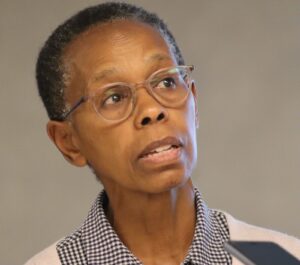
The International Commission of Jurists (ICJ Kenya) chipped into the conversation around mass protests organized by the Azimio La Umoja coalition, saying they are becoming a basis for violating the rights and freedoms entrenched in the Kenyan Constitution (2010).
The body of jurists noted that the events of the two mass protests of March 20 and 27 closely mirror the events of the Post Election violence in 2007 where political incitement led to atrocity crimes.
Mass Protests Threaten Democracy
In a statement on March 29, the ICJ said that the bi-weekly protests pose a threat to democracy, the rule of law, and human rights.
The ICJ said that although the constitution allows citizens to demonstrate, some abused this right and participated in destroying private property, including religious buildings.
“The destruction of property across the country was noted, particularly in Kibera, Mathare, Mukuru kwa Njenga, Northlands, Spectre East Africa International, and Kisumu, amongst other spotlighted areas.” said the ICJ.
The body further noted with concern the attacks on journalists on duty by police and goons during the protests.
“We wish to reiterate that the media must inform the public about the current situation in the country in a fair, and objective manner,” read the statement.
The group added that any attempts to gag the media should be condemned and considered a gross violation of media freedoms.
ICJ Calls Out Police for Inaction
The ICJ said that it was dismayed by the actions of the National Police Service (NPS) during the protests. Some were seen lobbing tear gas into peaceful crowds, while others failed to respond to the looting and vandalism at former President Uhuru Kenyatta’s farm in Northlands and other areas.
“We wish to remind the Inspector General of Police of his mandate under Article245 of the Constitution of Kenya and the National Police Service Act to exercise independent command of the National Police Service and duty to all Kenyans under the ‘Utumishi Kwa Wote’ banner and, therefore, cannot be seen and perceived as partisan in law and order in the country.”
The jurists also expressed concern about the reports of loss of lives, injuries, ethnic profiling, hate speech, and incitement across social media platforms.
ICJ called on the political class to consider using mediation mechanisms to promote dialogue to address divergent political positions.





